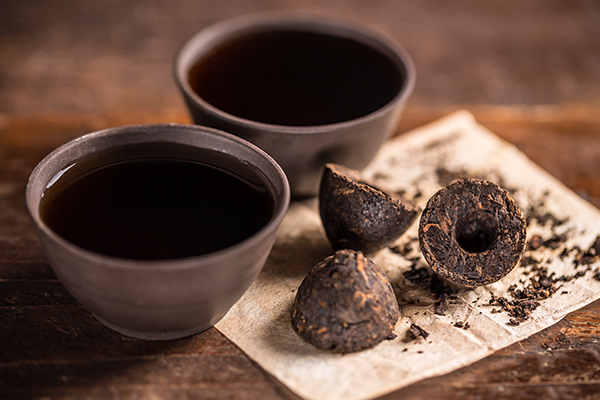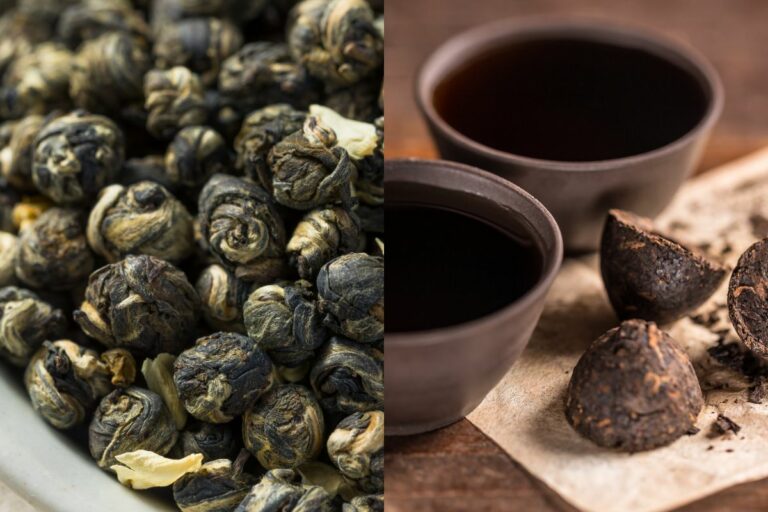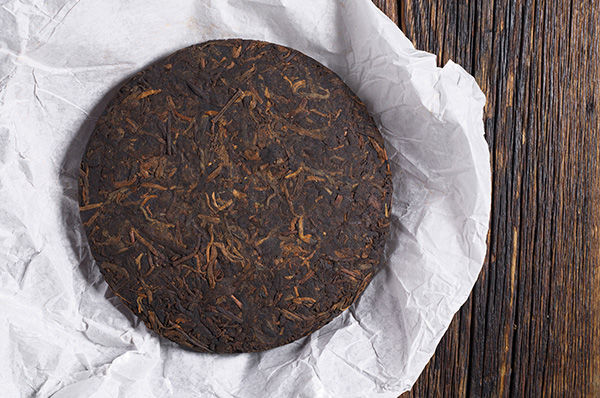How Much Caffeine in Pu Erh Tea?
Originating from the Yunnan province in China, Pu Erh tea is a unique fermented tea that has recently piqued the interest of tea enthusiasts due to its distinctive taste and possible health benefits.
As with any caffeinated beverage, it’s natural to wonder about the caffeine content of Pu Erh tea.
In this blogpost, we will delve into the factors that impact the caffeine content of Pu Erh tea, compare its caffeine concentration to other tea varieties and coffee, and answer some frequently asked questions.
So, how much caffeine is in Pu Erh tea? Pu Erh tea generally contains about 30-70 milligrams of caffeine per cup. However, the exact caffeine content in Pu Erh tea depends on factors like the specific Pu Erh variety, processing, and brewing methods.

Factors That Influence the Caffeine Content of Pu Erh Tea
Several factors contribute to the caffeine content of Pu Erh tea, including:
- Type of Pu Erh: There are two main types of Pu Erh tea – raw (Sheng) and ripe (Shou). Raw Pu Erh is the least processed and contains higher amounts of caffeine. At the same time, ripe Pu Erh undergoes a fermentation process that can reduce its caffeine content.
- Age of the tea leaves: The age of the tea leaves can also impact the caffeine levels in Pu Erh tea. Older leaves generally have less caffeine than younger leaves.
- Processing: The processing method used to create Pu Erh tea can affect its caffeine content. Fermentation and oxidation can decrease the caffeine levels in the final product.
- Brewing method: Steeping time, water temperature, and amount of tea leaves used can all affect the caffeine contents of Pu Erh. Longer steeping times, higher water temperatures, and larger amounts of tea will produce higher caffeine content in your cup.
Which Type of Pu Erh Tea Has the Most Caffeine?
There are two main types of Pu Erh tea.
Raw Pu Erh Tea (Sheng Pu-Erh)
The least processed form of Pu Erh tea is raw Pu Erh tea, also called Sheng Pu-Erh. It is generally sun-dried and can be aged for years or even decades, developing a sophisticated flavor profile.
Due to its minimal processing, raw Pu Erh tea generally contains more caffeine than its ripe counterpart. On average, raw Pu Erh tea has around 30-60 milligrams of caffeine per 8-ounce serving.
Ripe Pu Erh Tea (Shou Pu-Erh)
Ripe Pu Erh tea, or Shou Pu-Erh, undergoes a unique fermentation process that accelerates the aging of the tea. This process was developed in the 1970s to meet the growing demand for aged Pu Erh tea. The fermentation process gives ripe Pu Erh tea a distinct, earthy flavor that sets it apart from raw Pu Erh tea.
Ripe Pu Erh tea generally has slightly less caffeine than raw Pu Erh tea, averaging 30-50 milligrams per 8-ounce serving.
Does Pu Erh Tea Have More Caffeine Than Coffee?
Although Pu Erh tea does contain caffeine, it has significantly less caffeine than coffee. The average caffeine content of an 8-oz brewed cup of coffee is 80–100 mg. In comparison, Pu Erh tea, on average, has 30-70 milligrams of caffeine per 8-ounce cup.
Final Thoughts
Pu Erh tea is a unique and flavorful beverage with a caffeine content that falls between green and black tea. While the amount of caffeine in Pu Erh tea can vary due to factors like the type of Pu Erh, processing, and brewing method, it generally contains less caffeine than coffee.
If you’re looking for a delicious, caffeinated beverage that offers a milder alternative to coffee, consider giving Pu Erh tea a try.
FAQ
Can I Drink Pu Erh Tea at Night?
If you are sensitive to caffeine, avoiding Pu Erh tea in the evening or close to bedtime is best, as it may interfere with your sleep.
However, if you have a higher tolerance for caffeine or prefer a mild caffeinated beverage in the evening, you might find that Pu Erh tea suits your needs. It’s crucial to pay attention to your body and modify your caffeine consumption as needed.
Does Pu Erh Tea Have More Caffeine Than Green Tea?
The caffeine content in Pu Erh tea is generally higher than that of green tea. An 8-oz serving of green tea contains an average of 20-45 mg of caffeine, while the same serving of Pu Erh tea has 30-70 mg of caffeine.
However, it’s important to remember that factors such as processing, brewing method, and tea leaves’ age can influence the caffeine content in both types of tea.
What Is the Strongest Caffeine Tea in the World?
The strongest caffeinated tea in the world is typically black tea, specifically those made from the Camellia sinensis assamica variety, like Assam black tea. The amount of caffeine in these teas can range between 40 and 110 mg for an 8-oz serving, depending on aspects like processing, brewing method, and the type of tea leaf.


